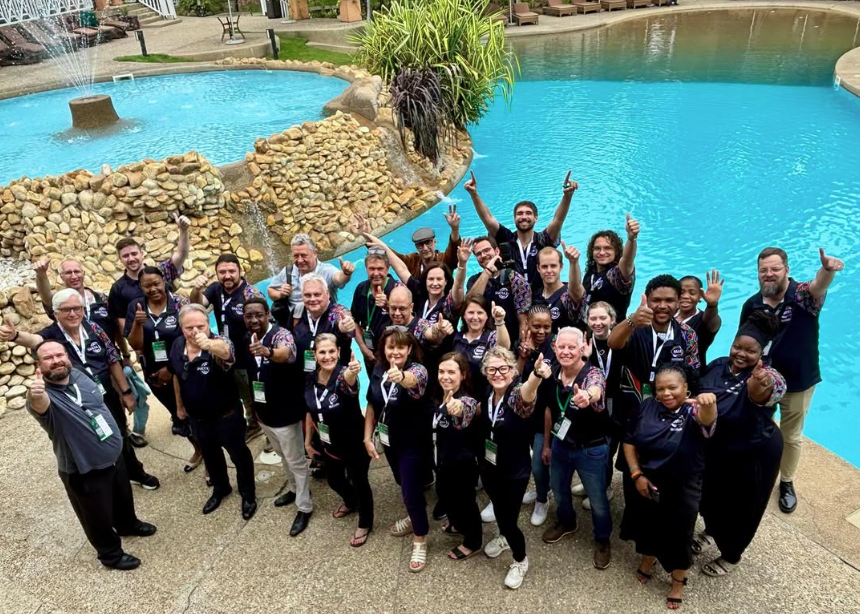Project managers possess the following five essential skills that make them great at leading teams:
1. Clear Communication
The project leader’s most significant abilities rely on communication that is effective at all times. Therefore, if communication is explicit, concise, and devoid of ambiguities; every member of the team will know their responsibilities, the objectives of the project – as well as the deadline given to complete it. Consequently, it encourages cooperation among team members so as reduce misunderstandings that hamper progress.
An ideal manager goes beyond just listening attentively to comprehend what stakeholders and teammates want and need. By listening to the wants and needs of everyone creates a sympathetic atmosphere, and this is established by such a dialogue helps in solving issues immediately thus curtailing time spent resolving conflicts while increasing faith in one another.
Pro Tip: To keep everyone informed, use collaboration platforms like Microsoft Teams or Slack in addition to team meetings.
2. Strong Decision-Making

There will inevitably be setbacks in any project, and the project manager must act decisively and quickly to keep things moving forward. Strong decision-making abilities are crucial for allocating resources and settling disputes within the team.
Proficient project managers possess the courage to make difficult decisions and, when necessary, include their team in the process to ensure optimal results while preserving team spirit.
Pro Tip: To methodically assess your alternatives and their results, think about utilising decision-making frameworks such as SWOT analysis.
3. Effective Delegation
Not everything has to be done by the project manager in order to be excellent. Actually, the most successful managers are adept at assigning work to others. By delegating, leaders can capitalise on team members’ talents while concentrating on more advanced planning and strategy.
Making sure that each team member’s abilities and knowledge are fully utilised requires assigning the appropriate assignments to the appropriate individuals. Delegating well also gives team members more authority, which increases their self-assurance and sense of project ownership.
Pro Tip: To guarantee responsibility and follow-through, monitor task progress using project management tools such as Asana or Trello.
4. Adaptability

The modern corporate environment is ever-changing, therefore being able to adapt is essential. Project managers need to be adaptable enough to quickly change course and modify their approach in response to alterations in the market, customer needs, or internal constraints.
Having the insight to prepare for the unexpected is another aspect of adaptability. Excellent leaders anticipate change and make sure their teams are prepared to meet new problems while maintaining focus on project objectives.
Pro Tip: Have backup plans ready to minimise any obstacles by using risk management approaches to detect them.
5. Emotional Intelligence

The modern corporate environment is ever-changing, therefore being able to adapt is essential. Project managers need to be adaptable enough to quickly change course and modify their approach in response to alterations in the market, customer needs, or internal constraints.
Having the insight to prepare for the unexpected is another aspect of adaptability. Excellent leaders anticipate change and make sure their teams are prepared to meet new problems while maintaining focus on project objectives.
Pro Tip: Have backup plans ready to minimise any obstacles by using risk management approaches to detect them.
Elevate Your Leadership with Project Management Training
The Project Management short course from the IMM Institute is a great place to start if you want to grow as a leader and acquire useful tools for managing projects in any setting. You will learn how to use these essential abilities in practical situations throughout this extensive course, which will provide you with the knowledge and self-assurance needed to lead like a pro.
Investing in these abilities is crucial for maintaining competitiveness in today’s fast-paced industry, regardless of whether you are now a project manager or are considering it as a potential career path. Understanding these fundamentals is beyond worthwhile – even for those outside the scope of project management; companies need to strike a balance between accepting change and doing “business as usual.”
Final Thoughts
To meet the demands of their roles, great project leaders continuously refine their craft. You will be well on your way to managing projects like a true professional if you can become an expert in communication, decision-making, delegating, adaptability, and emotional intelligence.
















